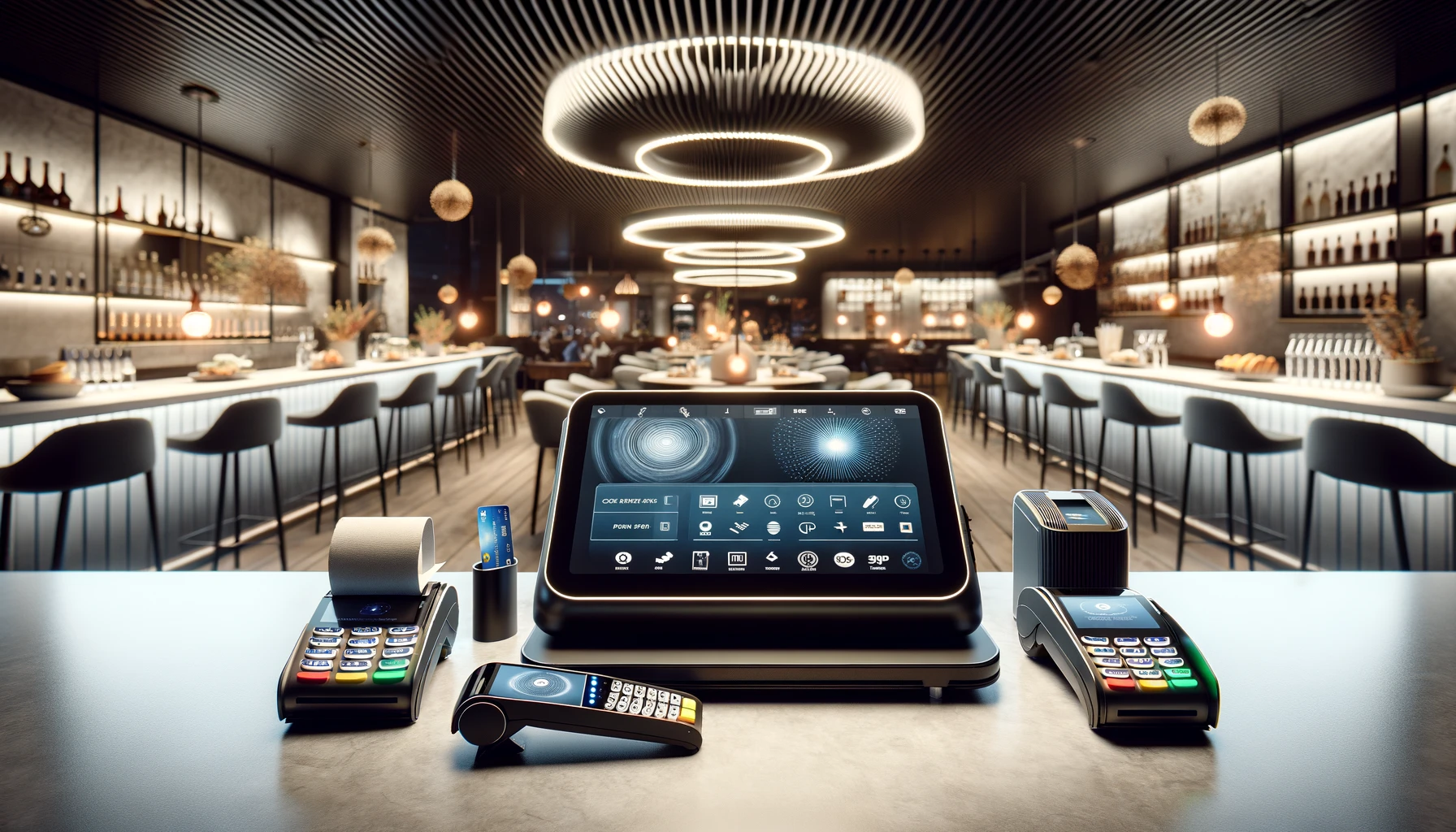Choosing the Right POS system Hardware for Your Business: A Comprehensive Guide

A Point of Sale (POS) system is the backbone of any modern business operation, whether you run a retail store, restaurant, or service-based business. While choosing the right POS software is essential, selecting the appropriate POS hardware can significantly impact the system’s functionality and overall customer experience. This blog will guide you through the factors to consider when choosing the right POS hardware for your business, ensuring your investment meets your needs and budget.
1. Understanding POS Hardware Components
Before diving into the specifics of what hardware you need, it’s important to understand the key components that make up a POS system. A typical POS hardware setup includes:
- POS Terminal: The device where transactions are processed. This can be a desktop computer, touchscreen terminal, or even a tablet.
- Cash Drawer: For businesses handling cash transactions, a durable, secure cash drawer is essential.
- Receipt Printer: A printer that produces paper receipts for customers. Some businesses might choose to go paperless, offering digital receipts instead.
- Barcode Scanner: Used to scan product codes for faster checkout. It’s a must for retail businesses.
- Card Reader: Enables businesses to process credit/debit card payments, including contactless and mobile payments.
- Customer Display: A screen that allows customers to view the transaction in real time.
2. Consider Your Business Type
The type of business you operate will heavily influence your choice of POS hardware. Retail stores, restaurants, and service-based businesses have different needs.
- Retail: In retail environments, speed and efficiency at checkout are paramount. You’ll likely need a reliable barcode scanner, a cash drawer, and possibly a self-service kiosk for larger stores. Retailers should also consider a customer-facing display to improve transparency during transactions.
- Restaurant: For restaurants, mobility is crucial. A mobile POS terminal, such as a tablet, allows servers to take orders and process payments tableside. You’ll also need a durable card reader and a kitchen printer to ensure orders are accurately relayed to the kitchen.
- Service-based businesses: If you offer services like hairdressing, consulting, or repairs, you may not need hardware like a barcode scanner, but a versatile POS terminal and card reader will be essential. Appointment-based businesses can benefit from integrated scheduling features in their POS hardware.
3. Mobility vs. Stationary
The decision between a mobile POS setup and a traditional stationary terminal is another critical consideration.
- Mobile POS: This option allows employees to take payments from anywhere in the store or restaurant, improving flexibility and reducing wait times. It’s particularly beneficial in environments like cafes, food trucks, or event spaces where mobility is key. Mobile POS systems often rely on tablets or smartphones equipped with card readers.
- Stationary POS: A traditional setup works well in retail and other businesses where the checkout process takes place in one spot. Stationary systems can include a more robust setup, including a desktop terminal, barcode scanner, and receipt printer. These systems are ideal for environments with higher transaction volumes and more complex inventory.
4. Compatibility with POS Software
Not all POS hardware is universally compatible with all POS software. When choosing hardware, ensure that it works seamlessly with your POS software. Some software providers offer their own proprietary hardware, which guarantees smooth integration. However, if you opt for third-party hardware, check the compatibility lists provided by your POS software vendor.
Choosing incompatible hardware can lead to software glitches, inefficiencies, and additional costs down the line. Conduct thorough research to ensure a smooth operation with minimal setup difficulties.
Also read : The Importance of Data Security in POS Systems
5. Durability and Ease of Use
The POS hardware you select needs to be durable and easy to use. In busy environments like restaurants and retail stores, hardware often endures heavy usage, spills, and wear and tear. Investing in rugged, high-quality hardware can save you money in the long run by reducing repair and replacement costs.
Additionally, hardware that is easy to operate ensures your staff can learn and use it quickly, minimizing training time. Touchscreen terminals with intuitive interfaces are often preferred for their ease of use.
6. Consider Future Scalability
While your current needs are important, it’s also crucial to consider how your business may grow in the future. If you plan to expand to multiple locations, upgrade your inventory system, or introduce new payment methods, choose hardware that can scale with your business. Look for hardware that supports integrations with various payment systems, loyalty programs, and analytics tools.
7. Cost vs. Value
POS hardware can range from budget-friendly to premium options. While it’s tempting to opt for cheaper hardware, consider the long-term value. More expensive hardware might come with better durability, customer support, and advanced features that can save you money over time. It’s essential to balance cost with the value the hardware provides for your business’s specific needs.
8. Security Features
Lastly, ensure that your POS hardware includes robust security features. With the rise of cyber threats and data breaches, secure hardware is non-negotiable. Look for devices that offer encryption for card transactions, secure access points for employees, and the ability to update software regularly to patch vulnerabilities.
Conclusion
Choosing the right POS hardware for your business is a significant decision that impacts your daily operations and customer experience. By considering factors such as your business type, mobility needs, compatibility, durability, scalability, and security, you can invest in POS hardware that not only meets your current needs but also grows with your business. A well-chosen POS system will streamline operations, enhance the customer experience, and contribute to the long-term success of your business.
Visit our site at www.dibtech.com.au
Visit our YouTube channel for tutorials Dibtech






